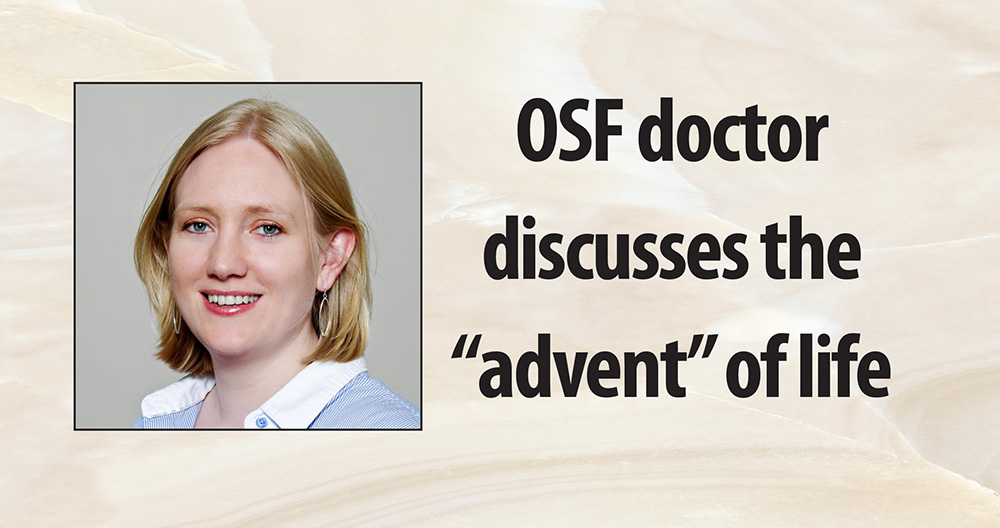At OSF Obstetrics, mother and child both come first

GALESBURG – As medical director of OSF Women’s Health and Fertility Care Services, Dr. Annevay Conlee has a unique perspective on Advent – a liturgical season that looks toward the physical birth of our Divine Lord.
“I think it comes back to my Catholic faith of always having that perspective of we are going to help support and sustain life.”
Conlee recently attended a meeting of OSF physician directors where she spoke to how “important it is for us in leadership in a Catholic healthcare system to dispel the myths as we encounter them.”
Without getting into the politics of the last election campaign, she said that many of the ads seemed designed to “confuse and . . . over-generalize,” in regard to pro-life.
Having delivered babies . . . . when I think of Jesus – God — becoming one of them it just kind of blows my mind, because in today’s world infants are not always valued.” – Dr. Annevay Conlee, medical director of OSF Women’s Health and Fertility Care Services
CARING FOR BOTH
“It’s this perspective right now that, ‘Oh, you’re going to let the Mom suffer and die because you care more about the baby,’ and that is not true at all.’’ She stresses, “We have to figure out how potentially we could save both.”
She describes a situation where there’s a 16-week pregnancy. “There’s a trauma that occurs; they’re in an accident . . . they need major surgery, which could risk the life of the 16-week pregnancy.”
The surgery will proceed. “We will do what we need to do to save the Mom, because that’s ultimately going to save the baby.”
She also addressed ectopic pregnancies where a baby plants in the fallopian tube, which would be fatal to both mother and child. “It’s a very sad situation where we have to take a baby whose heart is beating at that time, but really will not survive, because there’s no way they can grow within a tube.”
HOSPICE, PALLIATIVE AID MENTAL HEALTH
In one of the most challenging scenarios, Conlee talked about how Catholic medical ethics addresses the situation of an unborn child with a terminal genetic disorder.
“We’ve created palliative care and hospice programs for mothers that have babies that have conditions that are not survivable,” she says.
She says “research shows . . . from a mental health standpoint they (mothers) do much better going into those support situations with hospice or palliative care than aborting their baby earlier in the pregnancy.”
MEDICAL ETHICS/CATHOLIC FAITH – NO CONFLICT
Conlee explodes the myth that mother and child are in any kind of a competition for life. “The idea around having to have an abortion to save the Mom – that is really unheard of.”
By contrast, she indicated the real-life situations doctors are faced with, while certainly not easy, do not pit mother against child, or medical ethics against the Catholic faith.
“If there is a rare circumstance where the Mom is ultimately going to die unless we intervene, and that does put the baby at risk of dying, then that is something we have to do, but those circumstances thankfully are rare.”
She concludes, “From the Advent perspective . . . having delivered babies and seeing the vulnerability of infants . . . . when I think about Jesus – God — becoming one of them and becoming so vulnerable, it just kind of blows my mind, because in today’s world, infants are not always valued.”





